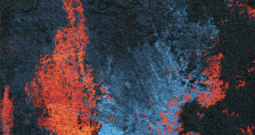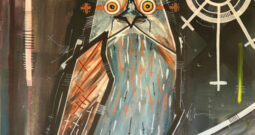from the editor's desk

‘Stories of Perth’: review by Susan Midalia
Stories of Perth. Sydney: Seizure, 2018. RRP $19.99, 304 pp, ISBN: 9781925589252
Susan Midalia
This anthology of twelve stories builds on the success of Stories of Sydney, both anthologies having been published in Seizure by Brio Books. Like its predecessor, this new volume explores the meaning and value of a particular Australian city, and reveals the cultural, sexual and class diversity of its inhabitants and social practices. The book reminds us, in short, that “Perth” is a set of different ideological perspectives as well as a geographical location. This diversity is sounded at the outset, in what for me is one of the strongest stories in the collection, Cassie Lynch’s ‘Split.’ A descendant of the Noongar people, Lynch creates a sensorial and thought-provoking story about the dispossession of her people and the possibility of Indigenous resilience. Blending magic realism and polemic, ‘Split’ contests the soulless and “bound” nature of the Swan River by imagining a place in which nature triumphs over civilisation: a tree grows out of a ticketing machine; dolphins swim in a car park; the splitting of the earth in the Darling Scarp is seen as visible proof of the violent origins of the city. “Perth” in this story is time as well as place; Indigenous Deep Time is represented as more spiritually sustaining than white Settler Time, and is used to affirm the historical continuity of Lynch’s culture and its sacred concept of the land.
The story that follows, Yirga Gelaw Woldeyes’ ‘In Search of the Kole,’ is similarly concerned with the non-material or spiritual significance of place. The author is from Ethiopia, and the story centres on the search for a sense of existential fulfillment that eludes him in anonymous, isolated suburbia. He is finally offered hope by the possibility of meeting Indigenous people who understand the need to experience a deep attachment to place. Other stories about multicultural Perth include Robert Wood’s deftly written and charming ‘Eating the Past, Eating the Future,’ which evokes Wembley Food Court as a place of culinary diversity and harmonious community. On a less optimistic, indeed, bleak note, James Cortez’s ‘Hyper’ is a confronting account of a young Filipino boy’s alienation from his white peers, as he tries to escape the meth-infected suburb of Belmont and a masculine culture of clubbing and boozing.
The stories about Anglo-Saxon culture in this book sometimes contrast idealised images of Perth – its pristine beaches and laid-back way of life – with the contemporary realities of social disaffection and drug addiction. Scott-Patrick Mitchell’s ‘Tales from Meth City’ is both a searing confessional account of the physical and psychological ravages of meth addiction, and a plea for understanding and social support. Maddie Godfrey’s ‘Intimacies,’ while imbued with the glow of romantic possibilities in Perth’s famous café The Moon, is also wary of a Perth parochialism that monitors the behaviour of gay women. Rebecca Higgie’s poignant ‘And Then, the Fish, It Died’ laments the loss of a baby, but also offers glimpses of the loving kindness of an Indigenous woman and an Indian nurse to the young English woman at the centre of the story.
As well as the range of content, Stories of Perth offers a pleasing range of styles, from the vernacular to the poetic, the linguistically spare to the embellished. There’s also a range of narrative modes, including magic realism, dirty realism, satire, memoir and dystopian fiction. The most formally audacious story in the book serves as a fitting conclusion: Elizabeth Tan’s inventive ‘Eighteen Bells Karaoke Castle (Sing Your Heart Out)’ imagines a future Perth trying to survive after ‘The Year of Unprecedented Ecological Terror’ and ‘The Year of Seven Different Prime Ministers.’ It’s a darkly humorous story that encourages reflection on current and ethically impoverished environmental and political practices.
Stories of Perth makes a strong showing, although there is some unevenness in the quality of the stories. As well, its emphasis on youth culture makes it less inclusive than it might otherwise have been. Perhaps the focus on youth was a marketing strategy, but the inclusion of stories by or about older Perth inhabitants might have enriched the landscape of lived experience presented in the anthology. Nevertheless, this is recommended reading for anyone interested not only in Perth as a physical location and mode of being, but in more generally applicable and important ideas about suburbia, multiculturalism, social malaise and the joyous possibilities of community.
Susan Midalia grew up in the Western Australian wheatbelt and has lived in Perth for most of her adult life. She is the author of three collections of short stories, A History of the Beanbag, An Unknown Sky and Feet to the Stars. Her collections have been shortlisted for the Queensland Premier’s Literary Awards and twice for the Western Australian Premier’s Book Awards. She retired from teaching in 2007 to become a full-time writer and freelance editor. Her first novel, The Art of Persuasion, was released in 2018 by Fremantle Press.





